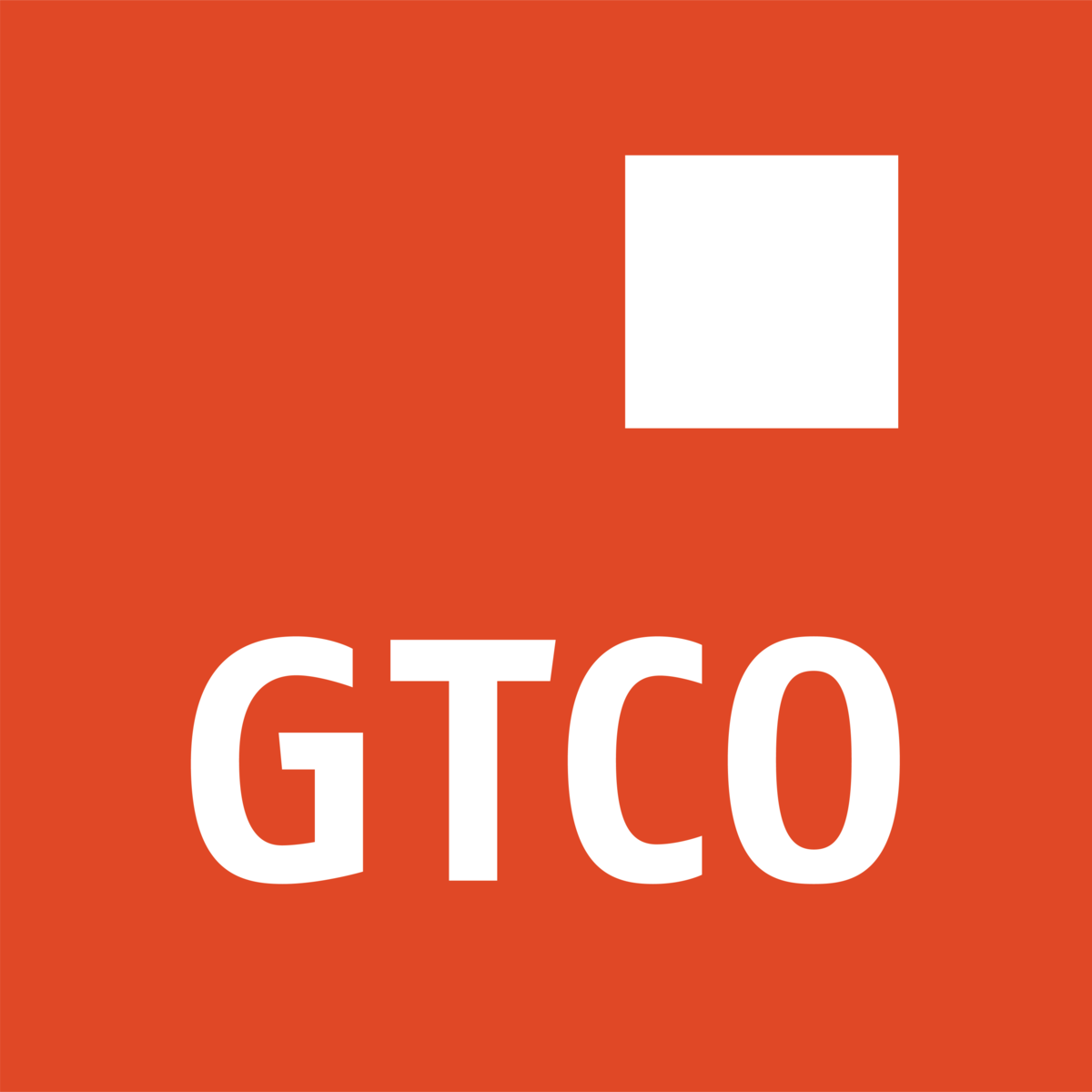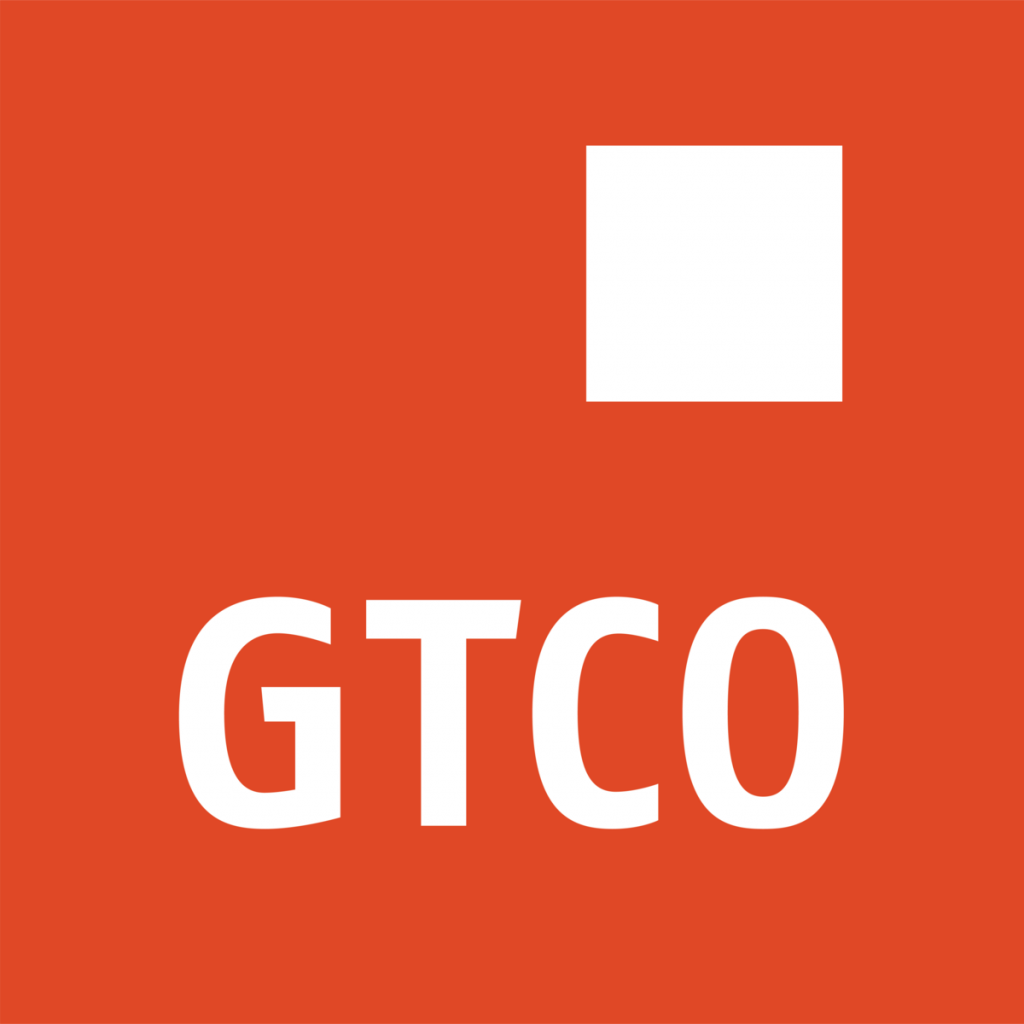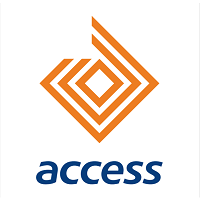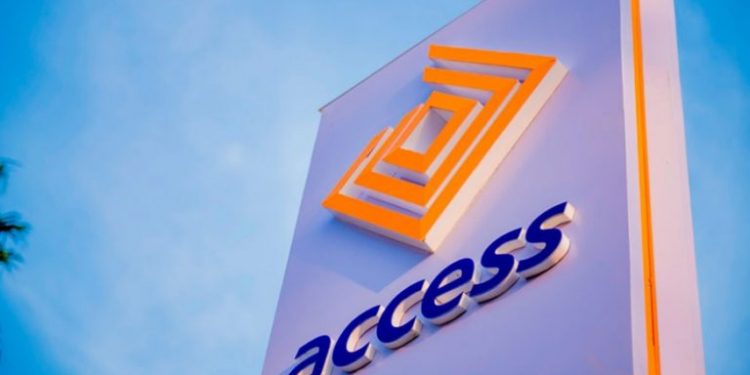brand
THE EVOLUTION OF NIGERIAN BANK OVER THE LAST FEW YEARS,A SERIES OF REFORMS HAVE REVITALISED THE BAKING INDUSTRY IN NIGERIA.JIM OVIA, CHAIRMAN OF ZENITH BANK


EXPLAINS HOW HIS ORGANIZATION IS CONTRIBUTINGTO ECONOMIC PROGRESS
NIGERIAS MODERNISED ECONOMY
For more than 10 years now, Nigeria economy has benefited greatly from sustained levels of growth
with annual real GDP rising to 6.3 percent in 2014 , and it is expected to continue on this positive trajectory into 2015 and beyond. Overall , the Nigerian economy is becoming more modern, resembling western developed economies, with the services industry providing the bulk of its economic output. It is responsible for more than 50 percent of total economic growth, while manufacturing and agriculture contributed around nine and 21 percent respectively, according to data complied by African economic outlook, the country has managed to diversify its economy away from oil-which is no simple feat. Other industry sectors-including the service industry-have grown to become the main drivers of growth in the country. Its population of around 178 million (see side bar) means that the retail consumer market is enormous and crammed with stirring opportunities. In Africa, the country is at the forefront of utilizing electronic banking products, with its huge telecommunications backbone, world-class banking applications and burgeoning biometric projects.
The past year has been good for Nigeria so far, but its growth has suffered, slowing slightly as consequence of reduced economic recovery in other parts of the world, and the price of oil is yet to bounce back from its current lows. Cheap oil has made a considerable dent in fiscal revenues, but due to the success of economic diversification, the country has managed to weather the storm rather effectively and helped mitigate the impact of the commodity’s low price. In order to combat the dip in revenue, the government has chosen to cut spending so that it doesn’t take on excessive levels of debt. It has also embarked on a strategy that involves shoring up non-oil revenues in a bid to compensate for declining oil revenues.
Boosting business
In a recent report by the world bank, which attempts to measure how effectively government regulation has assisted business activity in various countries, the international organization ranked Nigerians overall performance favourably, increasing its rank from 175 out of 189 to 170. The positive ranking by the world bank was due to the Nigerian government making it easier for individuals to do two things: set up a business and receive credit from financial institutions. Overall, the government has worked hard to increase the efficiency of its business environment and legal institutions in an effort to improve the performance of its economy.
The all progressives congress (APC) has continued to ease restraints on businesses, focusing on long-term judicial reforms that aim to bolster legal entities for contract enforcement.it is also eager to address issues like corruption and national security, both of which dramatically impact investor confidence and have the capablility of reducing foreign direct investment into the country. But these issues are not serious enough to dissuade all investors.
I don’t find it surprising that investors want to take part in Nigeria’s economy when you consider the exciting potential of our economy, our very high population which means we have very substantial consumer markets and our excellent infrastructures that make investment easy and ensure a good flow of information to investors themselves; said Peter Amangbo, CEO of Zenith Bank.
At zenith bank, helping domestic and foreign investors is one our strongest areas of activity. We think our devotion to customer service, our passionate enthusiasm for making sure that the service we offer are exactly what customers want and our ability to bring new services and new facilities to customers make us the bank of choice for investors both within Nigeria and beyond our borders who want to maximize their knowledge of the investment potential of Nigeria and also maximize their returns; In order to make credit more readily available for those looking to start a business, the government has had to implement a number of financial reforms. These have helped alter the financial reforms. These have helped financial environment, creating a stronger banking institutions that possess an efficient payments system. It has also helped to greatly improve the financial infrastructure of the country too.
The enormous success of e-banking in Nigeria, and the fact that it is not only seen in African.
But globally as a successful economy, is partly explained by the Central Bank Nigeria (CBN) encouraging cashless transactions in other to engender flexibility, speed and accountability. E-banking in Nigeria is also partly explained by the hurtling transformation of the economy which is increasing demands for banking services in general, and e-banking in particular.
Yet there is another key factor too: the success of e-banking in Africa’s most populous nation is also due to the sheer energy Nigeria’s most influential and far-sighted bankers, who ultimately know that the people who must want e-banking and all its associated advantages of banking services from their desktops, laptops, tablets and mobile phones, are the customers.
This makes banking easier with no need to find time to visit a physical branch, and its makes banking available on the move. A lot has changed for Nigeria’s banking industry over the years, and so World Finance spoke to Jim Ovia, Founder and Chairman of Zenith Bank, to discuss Nigeria’s economic history, and how the bank has diversified with the country’s changing economy.
From the humble beginnings
Ovia came into the industry to make a difference. He begun his career banking in Nigeria as an operator, redefining the way banking was done. He brought forward innovations in management, service delivery, customer service and the deployment of technology in banking operations.
With its head office based in Nigeria and franchises in major financial centres around the world, Zenith Bank provides an assortment of services and products in areas that include corporate and investment banking, commercial and consumer banking, personal banking, private banking and trade services.
It has over 500 branches and offices, spread across all states of the federation and the Federal Capital Territory (FCT), Abuja. Coupled with a presence in London, Ghana, Sierra Leone, The Gambia and representative offices in South Africa, Dubai and Beijing. Zenith Bank leverages its robust ICT infrastructure to provide secure and fast electronic channels and solutions to meet the dynamic needs of customers.
The extremely low turnover rate of the bank’s highest administration allows for consistency, continuity, focus and authorship. CEO Amangbo, along with the other executive directors, have been influential propelling Zenith Bank to its current market leading position. Working with Jim Ovia has put Amangbo in good stead to continue delivering the bank’s growth trajectory, of which he has been a prominent contributor.
What values have helped Zenith Bank achieve its success to date?
Zenith Bank is simply built on three core values: people, technology and service. These values have been the backbone of Zenith from inception to date. The bank thrives by putting the right people in the right places. The staff receive the best training available, which has helped build a strong corporate culture of goal oriented activities. Our people are empowered to be creative, innovative and at the same time, execute the highest level of efficiency. All these have contributed to a stable and highly motivated work force in Zenith. As a result of the training and exposure we give to our staff, we have been able to innovate, create and lead the banking revolution in Nigeria through the power of cutting-edge technology. Our practice in Zenith is to continually seek ways of improving existing banking practices, using top global bank as our yardstick.
The combination of highly motivated staff and state-of-the-art technology has led to excellent customer service, which has been our distinction within the Nigerian banking industry.
Our ability to meet and exceed the expectations of our customers over the years has made Zenith attractive to major businesses home and abroad.
How do you think the new administration can sustain economic growth?
As a bank that believe in putting the right people in the right place, Zenith has attracted and retained seasoned professionals in the area of risk management, compliance and legal services
This has helped it to build a reputation of compliance conscious bank, which has made it easier for us to work with government at all tiers and the several regulatory agencies in Nigeria and other countries. With such an international foot-print, we have and will continue to support the programmes and policies of the government in jurisdictions we operate.
As a reward to our conscious efforts on compliance with laws and regulations-and the support of government programmes-we have received significant support from the government of Nigeria, and beyond. We will continue to work cordially for more support.
After the government consolidation, larger Nigerian banks have been able to compete comfortably with other banks in the world. As players in the banking industry, we expect the new administration to continue to support the growth of Nigerian banks, as this helps to create jobs, wealth and expansion into other countries.
What is your strategy for expansion?
Zenith is continually seeking opportunities to expand and tap into profitable business ventures at home and abroad. It has a UK subsidiary, and this year opened a branch in Dubai. Despite the global economic growth downturn, there are numerous untapped business opportunities, especially in Africa and Asia, which the bank is watching closely.
How do you plan to integrate payment systems into the Zenith’s model?
As a technology driven bank, Zenith have been in the forefront of processing automation, and championed several projects that resulted to adoption of electronic banking. Zenith has deployed several platforms that have made banking services seamless and more efficient for customers. Using technology to facilitate payment has always been an integral part of Zenith’s banking model, and with the CBN’s drive for a cashless Nigeria, Zenith will continue to work with other stakeholders for a more efficient and secured payment system. The CBN has tightened monetary policy in 2015 by imposing forex restrictions on certain imports.
How have new environment conditions affected Zenith’s business, and what is need to stabilize the market? The Nigerian economy is overly import-dependent, and this today has led to a significant loss of foreign exchange. Therefore, the position of foreign exchange restrictions on certain imports would in fact not only help in foreign exchange management by saving the country a forex haemorrhage, but it would also help to promote the local industries with its attendant spill-over effect on creating jobs and increasing wealth.
The current monetary condition is a fallout of dwindling oil prices and drop in government receipts. The implication is that the CBN is not able to meet all the forex needs of every customer. However, Zenith is coping very well with the current situation by forex rationing to meet the needs of its customers, while ensuring compliance with relevant laws and regulations.
The banking system is a key piece of Nigeria’s future, but SMEs have difficulty finding capital.
How has access to financial services throughout the Nigerian economy changed?
Access to finance is no doubt challenging but improving, especially for SMEs because of high interest rates due to high cost of sourcing deposits.
However, that circumstance is gradually changing since the introduction of various intervention schemes, particularly the Micro Small and Medium Enterprise Development Fund (MSMEDF) with single digit interest rate by the CBN. It is expected that funding for SMEs will be more accessible than it used to be.
Technology features greatly at Zenith Bank. How has this being implemented?
Technology is integral to the bank’s business strategy. We deploy cutting-edge technology platforms to enable seamless transaction for our customers.

brand
Guaranty Trust Holding Company Plc (“GTCO” or “the Group”) has released its Unaudited Consolidated and Separate Financial Statements as of September 30, 2025, to the Nigerian Exchange Group (NGX) and London Stock Exchange (LSE)


The Group posted profit before tax of ₦900.8billion on the back of strong performance on the core earnings lines of interest income and fee income which grew y-o-y by 25.6% and 16.8% respectively. The strong core-earning performance continued to narrow the y-o-y dip in PBT to 26%, thereby cushioning the impact of the ₦523.2bn fair value gains recognised in Q3-2024, which did not recur in Q3-2025.
The Group recorded growths across all its Asset lines and continues to maintain a well-structured, healthy liquid and diversified balance sheet in all the jurisdictions wherein it operates a Banking franchise, as well as across its Payments, Pension and Funds Management business verticals.
Group’s total assets and shareholders’ funds closed at ₦16.7trillion and ₦3.3trillion, respectively. Capital Adequacy Ratio (CAR) remained very robust and strong, closing at 36.5%, likewise asset quality improved as evidenced by IFRS 9 Stage 3 Loans which closed at 3.3% and 4.4% % at Bank and Group level in Q3-2025 (Bank 3.5%, Group 5.2% in December 2024). Cost of Risk (COR) also improved to 2.2% from 4.9% in December 2024. In specific terms, the Group’s loan book (net) grew by 16.5% from ₦2.79trillion as of December 2024 to ₦3.24trillion in September 2025. Similarly, deposit liabilities grew by 16.0% from ₦10.40trillion to ₦12.06trillion during the same period.
Commenting on the results, the Group Chief Executive Officer of Guaranty Trust Holding Company Plc, Mr. Segun Agbaje, said: “Our third quarter performance underscores the consistency and resilience of our business model, as well as the continued strength of our diversified financial services ecosystem. We are seeing steady, sustainable growth across our banking and non-banking businesses, supported by disciplined execution and a strong focus on operational efficiency. The improvements we have made to our digital and payments infrastructure are enhancing customer experience, deepening engagement, and driving greater integration across our ecosystem.”
He further stated: “Looking ahead, our focus remains on advancing our competitive edge through innovation, operational excellence, and a commitment to superior customer outcomes. With a clear growth trajectory and strong organizational alignment, we are well-positioned to sustain performance momentum and deliver another year of industry-leading results.”
Overall, the Group continues to post one of the best metrics in the Nigerian Financial Services Industry in terms of key financial ratios i.e., Pre-Tax Return on Equity (ROAE) of 39.5%, Pre-Tax Return on Assets (ROAA) of 7.6%, Capital Adequacy Ratio (CAR) of 36.5% and Cost to Income ratio of 28.8%.
Guaranty Trust Holding Company Plc is a leading financial services group with operations across Africa and the United Kingdom. Renowned for its strong corporate governance, innovative financial solutions, and customer-centric approach, GTCO Plc provides a wide range of banking and non-banking services including payments, funds management, and pension fund administration. The Group is committed to delivering long-term value to stakeholders while driving growth and development across its markets
brand
Access Holdings Reports 2.5 Trillion Gross Earnings in H1 2025


Access Holdings Plc (“the Group” or “the Company”) today announced its half-year audited financial results for the period ended June 30, 2025.The Group’s financial results for the half year ended June 30, 2025, reflect the resilience of our business model, the diversification of our revenue streams, and the steady progress to the execution of our five-year strategic plan. Gross earnings increased by 13.8% year-on-year to 2.5 trillion in H1 2025 from 2.2₦ ₦ trillion in H1 2024, driven by strong growth in interest income which increased by 38.9% year-on-year to 2.0 trillion from 1.5 billion in H1 2024. Net interest income also increased by 91.8% year-on-year to 984.6 billion in H1 2025 from 513.4 billion in H1 2024. Complementing this performance was a growth in net fees and commission income, which increased by 16.1% year-on-year to 237.7billion in H1 2025 from 204.7 billion in H1 2024. Profit before tax (PBT) and profit after tax (PAT) closed at 320.6 billion and 215.9 billion respectively underscoring the strength and resilience of our business model in the markets we operate in. Key balance sheet indicators remain strong with total assets, customer deposits, loans and advances, and shareholders’ equity closing at 42.4 trillion, 22.9 trillion, 13.2 trillion 3.8 trillion respectively. The Banking group demonstrated resilient performance in H1 2025. Interest income grew by 38.7% year-on-year to 2.0 trillion in H1 2025 from 1.5 trillion in H1 2024. Net interest income increased by 85%, from 536.7 billion in H1 2024 to 992.7 billion in H1 2025. Fee and commission income increased by 27% to 294.9 in H1 2025 from 232.5 billion in H1 2024 driven by increased transaction volumes. Profit before tax (PBT) and profit after tax (PAT) closed at 303.0 billion and 199.3 billion respectively. Banking group subsidiaries contributed 65% to the Banking group’s profit before tax (PBT) in H1 2025. This result highlights our journey towards sustainable performance and execution across our key African and international markets. The Group’s non-banking subsidiaries maintained a strong growth momentum. For Access – ARM Pensions, financial performance was robust, with revenue up 29.9% to 21.0 billion and profit before tax up 65.1% to 13.1 billion. The business delivered a₦ ₦
www.accessbankplc.com solid ROAE of 48.1%, a cost-to-income ratio of 35.1%, and a PBT margin of 62.5%, underscoring strong operational efficiency and profitability. Hydrogen Payments recorded a 40.5% growth in top-line revenue compared to H1 2024. Profit before tax (PBT) grew by 273% year-on-year. The total transaction value processed increased by 211%, reaching 41.1 trillion in H1 2025, up from 13.8 trillion in H1 2024. Access Insurance Brokers has sustained strong momentum, recording a 125% year-on-year increase in gross written premium, 146% growth in revenue, and a 161% improvement in profit before tax (PBT). Oxygen X, the Group’s digital lending arm, has sustained strong momentum since launch in Q3 2024, delivering 5.4 billion in revenue and 2.2 billion in profit before tax in H1 2025. Access Holdings’ businesses are well-positioned to deepen market penetration, expand product offerings, and leverage cross-sell opportunities across the Group to drive continued growth and profitability. The group’s focus remains on driving prudent growth and continued execution of its strategic priorities, scaling its digital and transaction-led income streams, increasing revenue diversification, embedding efficiency, innovation, and disciplined portfolio management across all areas of the business. It will also continue to uphold the highest standards of risk and governance discipline to ensure sustainable profitability.Access Holdings remains confident that it will continue to deliver sustainable value and returns to its shareholders. Its long-term objective is to build a stronger, more agile Group that consistently delivers superior returns, fosters innovation-driven growth, and optimises portfolio performance to create inclusive value across its markets while reaffirming investor confidence in the strength and future of Access Holdings. The Group appreciates the continued trust and support of its shareholders, customers, and employees. Together, the Group is building a stronger future.
brand
JIM OVIA: FOUNDER/CHAIRMAN ZENITH BANK, REAFFIRMS STRONG COMMITMENT TO SHAREHOLDER VALUE AT THE NGX CLOSING GONG CEREMONY


L-R:GMD/CEO, Nigerian Exchange Group, Mr. Temi Popoola; Group Managing Director/CEO, Zenith Bank Plc, Dame Dr. Adaora Umeoji, OON; Chairman and Founder, Zenith Bank Plc, Jim Ovia, CFR; Group Chairman, Nigerian Exchange Group, Alhaji (Dr.) Umaru Kwairanga; Director General, Securities and Exchange Commission(SEC), Dr. Emomotimi Agama; CEO, Nigerian Exchange (NGX), Mr. Jude Chiemeka; and CEO, Central Securities Clearing System Plc, Mr. Haruna Jalo-Waziri at the Closing Gong Ceremony of the Nigerian Exchange Limited, yesterday.
Zenith Bank Plc’s Founder and Chairman, Dr. Jim Ovia, CFR, accompanied by the bank’s Group Managing Director/CEO, Dame Dr. Adaora Umeoji, OON, on Tuesday, October 14, 2025, carried out the prestigious closing gong ceremony at the Nigerian Exchange (NGX), marking a significant milestone in the bank’s continued partnership with the capital market and the official closing of the trading day. The ceremony highlights Zenith Bank’s strong relationship with the NGX and its commitment to transparency, accountability, and bolstering investor confidence. While speaking at the Nigerian Exchange, Dr. Umeoji expressed her delight in participating in the closing gong ceremony, acknowledging the NGX’s visionary leadership and innovative initiatives. “We are delighted to be here today to perform the closing gong ceremony – a symbol of shared progress and enduring partnership,” Dr. Umeoji said. “The NGX’s leadership has been very creative and innovative, and their electronic trading platform – X-stream played a pivotal role in the success of our recapitalization exercise, which achieved a 160% subscription. The bank’s stock price has doubled since the recapitalization exercise, from N36.50 per share to N68. Zenith Bank has also reported impressive financial results for the Half Year (H1) of 2025, becoming the most profitable bank in Nigeria and paying the highest dividend in the industry for the half year.””We are committed to creating value for our stakeholders and will continue to partner with the NGX to boost the Nigerian economy,” Dr. Umeoji added. “Our expansion strategy is focused on following our customers’ businesses and ensuring that we go to countries and economies where we can scale and provide more returns for our shareholders.”She stressed that the bank plans to make good on its promise of being investors’ delight by paying quantum dividends to its shareholders by year end. According to her “For us in Zenith, we are looking forward to paying more based on the confidence the market reposed on us. We are working assiduously to ensure that we do not disappoint the Market. We are going to continue to be the investors’ delight, and we assure the market that we would continue to pay enhanced dividends come end of the year.”Also commenting, the Director General of the Securities and Exchange Commission (SEC), Dr. Emomotimi Agama emphasised the role of the NGX in creating value in the Nigerian economic space. He said, “I want to thank you all for making the market what it is. Without you, the market wouldn’t have seen the leap that it has achieved in the last one-and-half year. I spoke earlier that at my assumption of office, market capitalization stood at N55 trillion, today it is hovering around 89 trillion and 93 trillion. That was not done by a spirit, it was done by you. Your ability, tenacity, courage, vision and transparency have moved the market where it is. Our vision is that by next year, we will have the market at 200trn.”
The Doyen of the NGX, Alhaji Rasheed Yusuf while giving his remarks, lauded the Founder & Chairman, Zenith Bank Plc, Jim Ovia, CFR for his vision and leadership. He ended by referring to him as the “Doyen of the Commercial banking sector”.Zenith Bank remains committed to creating long-term value for its stakeholders while driving economic development in Nigeria. As the bank continues on its growth trajectory, it has its sights set on global expansion. The bank intends to strategically leverage the capital raised from the Market to enhance its scalability and deliver enhanced services to its valued customers.The Bank’s track record of excellent performance has continued to earn the brand numerous awards, including being recognised as the Number One Bank in Nigeria by Tier-1 Capital for the sixteenth consecutive year in the 2025 Top 1000 World Banks Ranking, published by The Banker and “Nigeria’s Best Bank” at the Euromoney Awards for Excellence 2025. The Bank was also awarded Bank of the Year (Nigeria) in The Banker’s Bank of the Year Awards for 2020, 2022 and 2024; Best Bank in Nigeria from 2020 to 2022, 2024 and 2025, in the Global Finance World’s Best Banks Awards; Best Bank for Digital Solutions in Nigeria in the Euromoney Awards 2023; and was listed in the World Finance Top 100 Global Companies in 2023.Further recognitions include Best Commercial Bank, Nigeria for five consecutive years from 2021 to 2025 in the World Finance Banking Awards and Most Sustainable Bank, Nigeria in the International Banker 2023 and 2024 Banking Awards. Additionally, Zenith Bank has been acknowledged as the Best Corporate Governance Bank, Nigeria, in the World Finance Corporate Governance Awards for four consecutive years from 2022 to 2025 and ‘Best in Corporate Governance’ Financial Services’ Africa for four consecutive years from 2020 to 2023 by the Ethical Boardroom.The Bank’s commitment to excellence saw it being named the Most Valuable Banking Brand in Nigeria in The Banker’s Top 500 Banking Brands for 2020 and 2021, Bank of the Year 2023 to 2025 at the BusinessDay Banks and Other Financial Institutions (BAFI) Awards, and Retail Bank of the Year for three consecutive years from 2020 to 2022 and 2024 to 2025 at the BAFI Awards. The Bank also received the accolades of Best Commercial Bank, Nigeria and Best Innovation in Retail Banking, Nigeria, in the International Banker 2022 Banking Awards.Zenith Bank was also named Most Responsible Organisation in Africa, Best Company in Transparency and Reporting and Best Company in Gender Equality and Women Empowerment at the SERAS CSR Awards Africa 2024; Bank of the Year 2024. by New Telegraph Newspaper; and Best in MSME Trade Finance, 2023 by Nairametrics. The Bank’s Hybrid Offer was also adjudged ‘Rights Issue/ Public Offer of the Year at the Nairametrics Capital Market Choice Awards 2025.
-

 news5 years ago
news5 years agoUPDATE: #ENDSARS: CCTV footage of Lekki shootings intact – Says Sanwo – Olu
-

 lifestyle5 years ago
lifestyle5 years agoFormer Miss World: Mixed reactions trail Agbani Darego’s looks
-

 health5 years ago
health5 years agoChairman Agege LG, Ganiyu Egunjobi Receives Covid-19 Vaccines
-

 lifestyle4 years ago
lifestyle4 years agoObateru: Celebrating a Quintessential PR Man at 60
-

 health5 years ago
health5 years agoUPDATE : Nigeria Records 790 new cases of COVID-19
-

 health5 years ago
health5 years agoBREAKING: Nigeria confirms 663 new cases of COVID-19
-

 entertainment9 months ago
entertainment9 months agoAshny Set for Valentine Special and new Album ‘ Femme Fatale’
-

 news5 months ago
news5 months agoBREAKING: Tinubu swears in new NNPCL Board


